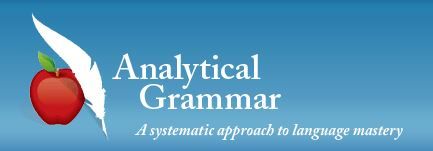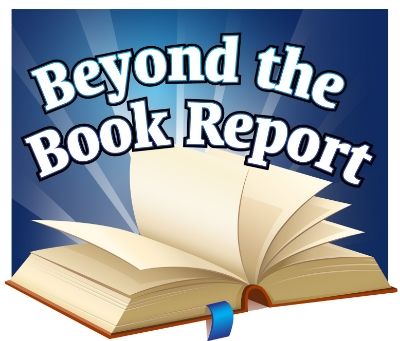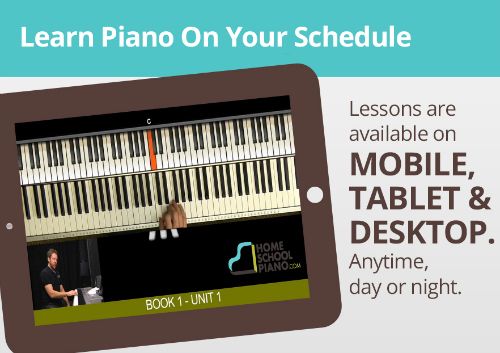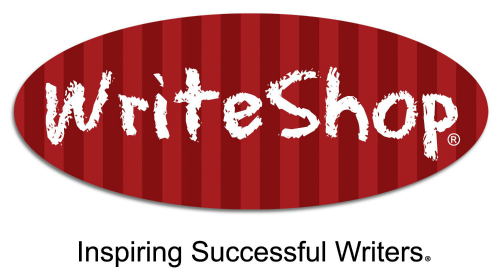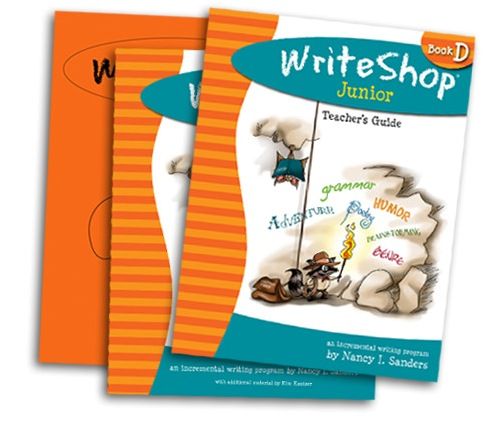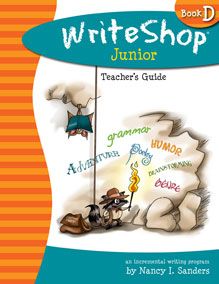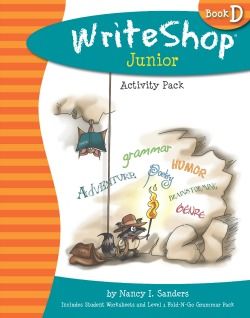 Before I started homeschooling, I taught at a Catholic classical school. I could write volumes on that brief experience, but suffice it to say that it was at that time that I first became acquainted with Veritas Press, not because our school used their curriculum (remember, it was a Catholic school), but because while exploring our local homeschool store for materials for my class, my eye was caught by the gorgeous Omnibus text. Having once seen that baby in person, one is not likely to forget it. It is (literally) a work of art! When I started homeschooling shortly thereafter, I kept returning to that beautiful textbook, but I could never quite bring myself to commit to the program, primarily because I am such a peripatetic homeschooler!
Before I started homeschooling, I taught at a Catholic classical school. I could write volumes on that brief experience, but suffice it to say that it was at that time that I first became acquainted with Veritas Press, not because our school used their curriculum (remember, it was a Catholic school), but because while exploring our local homeschool store for materials for my class, my eye was caught by the gorgeous Omnibus text. Having once seen that baby in person, one is not likely to forget it. It is (literally) a work of art! When I started homeschooling shortly thereafter, I kept returning to that beautiful textbook, but I could never quite bring myself to commit to the program, primarily because I am such a peripatetic homeschooler!

Imagine my utter delight, then, when
Veritas Press Self-Paced Omnibus I was offered for review! Recommended for ages 12 (7th grade) and up, it is tailor made for Therese and me! Before I get into the delights of this course, let's get the boring (but highly necessary!) basics out of the way. This course costs $295 (with a $100 sibling discount!). The time period studied is the ancient world through the end of the first century. The course is presented through a series of lectures, interviews, and group discussions (among experts) that you, the student, get to "sit in" on and observe. It is primarily a lecture course, though. Assignments include reading and worksheets. Works considered in Omnibus I include:
- Genesis and Exodus
- Gilgamesh
- Codes of Hammurabi and Moses
- The Odyssey of Homer
- Landmark Herodotus
- Aeschylus' The Oresteia Trilogy
- Plutarch Vol. 1
- Sophocles' The Theban Trilogy
- The Last Days of Socrates
- The Early History of Rome
- The Aeneid
- The Twelve Caesars
- Julius Caesar
The gorgeous Omnibus I text itself is strongly suggested, although not required.
Before signing up for the course, the website will test your computer's compatibility for you. The requirements are pretty basic. You will need Flash, a decent connection speed for streaming, and a pretty basic screen resolution size. Now, I realize I just said that you need Flash, but Therese has done all of her work on the iPad, and we have not used a Flash browser. I'm not sure how. I'm curious if other people have been able to do that as well. Ironically, I was not able to use my laptop as it kept telling me that I needed a certain screen resolution size and mine doesn't fit the bill. My laptop is only a few months old, and it is top of the top of the line. Its screen resolution is twice that required by Veritas. No matter what I did, though, Omnibus would not run on it. I didn't call customer service (I'm sure it would have been an easy fix) for two reasons: Omnibus I runs fine on all of our other computers and, as I said, Therese has been doing it on the iPad anyway. In fact, I have lately been projecting the iPad onto the TV (I *love* technology!), so I saw no need to pursue the issue of my fussy computer.
How It Works
The course is *very* easy to use. There is a parent account and a student account. The student launch page looks like this:
You can see from Therese's name in the upper right hand corner (in the above picture) that she is logged in.
In the picture below, I am logged in. I can see at a glance what assignments Therese has done, what she has upcoming, and what her grades are. Please ignore her grade. She is mortified that it is not an A. She got an "F" on a quiz about covenants. I watched her retake it. I have a minor in Theology and *I* found that puppy hard! It was a definitional thing more than anything else. Too much justification (no pun intended - ha!)? In any case, you can see how easy it is to follow what your child is doing from this page.
Also, your child can't move ahead in the course until she has completed the current assignment. Succeeding assignments remain locked. That means that no matter how much she may want to get to Homer, the Code of Hammurabi comes first! In a Great Books course like this one, that enforced progression is necessary, and I appreciate that Veritas Press has set up its self-paced course that way.
Therese (12 - but almost 13!) and Omnibus I
I will confess that while Therese was excited about getting this course, I was beside myself. This reading list is a condensed version of my first year in Honors at University of St. Thomas, a Great Books program. Freshman year in the Honors program is the Old Testament and the Greeks. I knew when I started homeschooling that I would be teaching my Honors curriculum to my kids when they were old enough. I suffered through phonics and addition and have, I will admit, held Therese to a very high standard and schooled her year-round to get to the point where we could study the fun stuff (disclaimer: she is ridiculously bright and she loves school - she hasn't resented my efforts. Much.)...and the fun stuff is here!
There are other Great Books-ish programs out there. They call themselves classical. They succeed at some things and fail at others. Their primary failure is that they base their programs off of one essay by Dorothy Sayers and think that they are accomplishing classical education. I don't really care all that much what you call it. If it doesn't teach the Great Books - that canon that has been taught for hundreds of years - I'm not interested. Veritas Press teaches the Great Books. I could write reams on why they are important, but that's not my focus here (note to self: write reams on why the Great Books are important). Moreover, it doesn't dumb them down or teach the kiddie version (I'm not sure how you could do kiddie Sophocles...the mind boggles). It introduces kids of a fairly young age to works of great importance (and perhaps to the first feminist - Anitgone).
I'll admit - I thought that Therese was in love with this program as much as I was. When we first got it, she abandoned all her other school work to work on it and I was completely fine with that. She started off doing multiple lessons a day and moved through the Genesis section very quickly. She really liked watching three Bible scholars discuss the three views of Creationism (although she did not appreciate me making her read the relevant sections from the Catechism of the Catholic Church in order to make sure that she was completely grounded in Catholic teaching on Creationism. Yes, it's something we have talked about extensively, but I realized she had never actually read the Magesterium on the subject and I thought it entirely appropriate that she did. She just saw it as a lot of work. Oh, well. It's what I do.), and I liked the balanced presentation of the material. I really enjoyed seeing people discuss such a subject in a somewhat rational manner. It's very rare in my world!
I know that Therese does enjoy the course, and I know that she is looking forward to continuing with it, but I was a little surprised when I asked her to share her opinion for this review. This is what she said:
"I enjoy it. I like that it is a self-paced course. I find the reading material interesting and a nice break from my normal school work. I think the lectures are kind of long, and while I have learned some things from them, they served best as a review before the quizzes. I have already studied much of this subject matter before, so I am hoping that I will learn more as the course gets into material that is completely new to me. As a Catholic, I have found a couple of things Mr. Etter has said to be either confusing or at odds with what I believe. For example, I don't believe the Greek and Roman gods were real and were demons. However, I am prepared for things like this to come up in Protestant courses. I did enjoy it when Mr. Etter interviewed the Rabbi who talked about reading certain parts of the Old Testament more figuratively, as that is consistent with how we as Catholics are taught to interpret the Bible. I appreciate the presentation of different points of view. I am not a big fan of the street interviews included as part of the lectures."
I so enjoyed her perspective! While I am looking at the big picture and see this as a wonderful Great Books course, Therese is, of course focusing on what is immediately relevant to her: the presentation of the material. As she mentioned, she has covered Genesis, Exodus, and Gilgamesh in other courses, so she is definitely looking forward to moving on. She is studying the Code of Hammurabi and Moses right now (more review), but Herodotus is coming and, apart from snippets I have read to her, that will be new material. Also, I definitely understand that she struggles with this material being delivered from a Reformed Protestant perspective, but she is very well grounded in her Catholicism, and she knows when the beliefs presented conflict with what we believe. It makes for some great apologetics training!
Further, because she is the one actually reading all of the material (while I have just skimmed), she was able to tell me something I hadn't realized about the program: her primary observation is that the essays are far more about how the readings relate to God and a Christian worldview than they are about the readings themselves. In less convoluted terms, the essay on The Code of Hammurabi is not so much on The Code of Hammurabi as it is on laws in general and on how people without God's laws (these are Therese's words now) were not able to have a successful society. This approach is not the one that I take toward teaching the Great Books. It sounds awful to say that I don't teach everything as it relates to God, but, well, I don't. Our whole day is imbued with our Catholicism, but sometimes a classic is just a classic. That's my take.
Final Thoughts
I think I've been pretty clear about most of the things we like and dislike about this program, but there are a couple of minor things I wouldn't mind seeing changed. As I said, Therese failed a quiz miserably. She went back and took it (multiple times!), but could not change her grade at all. For a kid who loathes anything other than an A, that was irritating for her. I'm not a fan of allowing an F to be replaced entirely, but I think allowing two grades to be averaged would not be a bad thing.
Also, as I have said, you can't start this course anywhere but the beginning. As I have indicated, overall I think this approach is a very good one. For some kids who have studied this material before, though, repeating the reading can be tedious. Allowing them to "place out" of it by taking a quiz might be an option. Then again, though, as Therese observed, the entire point of the course is to impart this particular worldview, so allowing this kind of skipping ahead would probably not be tenable.
I have such mixed feelings about this course! On some levels I really like it a lot! For what it is, I think it ends up being as balanced as it can be. To be clear, Veritas makes no bones about where they are coming from. You know going in that you are taking a Biblical Worldview course from Reformed Protestants (so many serious capital letters!). For this time period, I don't find that to be all that problematic for Catholics (caveat: I absolutely don't think that Catholics who are not well-grounded in their own faith should ever take courses like these). In fact, the course has raised several great talking points for Therese and me.
However, Therese has made some great points. She wants to learn about the literature she is reading. She does not want to learn about why the cultures that produced this literature would have been better off with God. Of course they would have - that's a given. Again, that is one girl's opinion. If you are seeking a course that introduces your child to some of the must-read literature from (mostly) Western Civilization, but you want to ensure that your child gets this literature delivered with a healthy dose of Biblical Worldview, this course is EXACTLY what you are looking for! Especially if you have not studied these works yourself, you can rest assured that your child will be in eminently qualified hands and that she will only be learning things consistent with a Biblical Worldview. For parents who are a little gun shy about letting their kids study ancient cultures because of the prevalence of pagan gods, this course is an excellent choice: you can study the material without fear of learning false teaching.
Other Crew families got to review Omnibus I as well as other really neat Veritas Press online classes. Click the banner below to read about their unique experiences.


